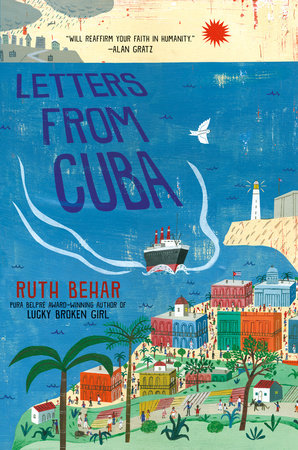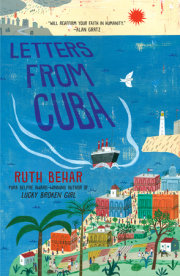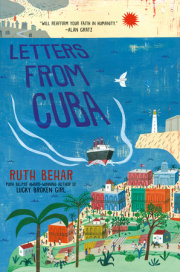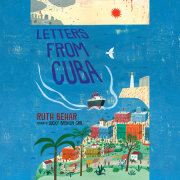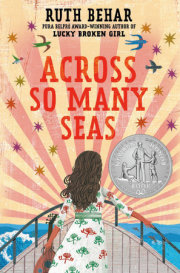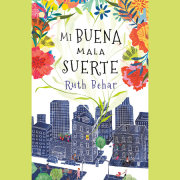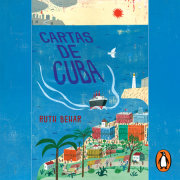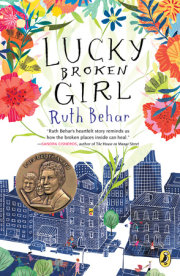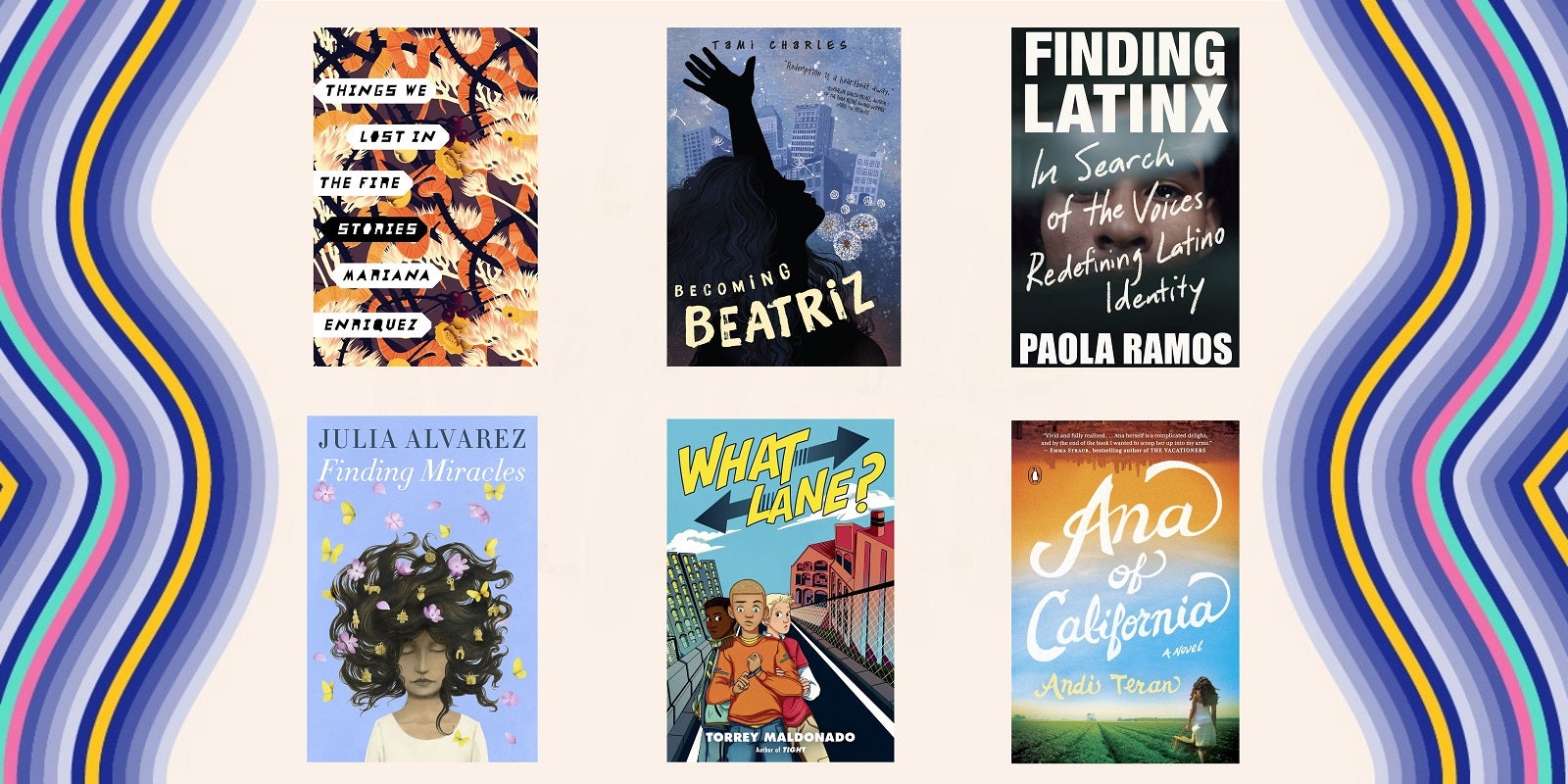Govorovo December 2, 1937 Dearest Papa, I am writing to you out of desperation. I pray that my letter arrives safely in your hands so you will listen to my plea. How is it possible we’re still separated from you and that three years have passed since you left for Cuba? Would you recognize us today—your own family? I could fill a river with my tears when I think of you being so far away. Mama worries we will never see you again. “Your papa is gone forever,” she says. She scares my brothers and sister with those terrible words, but I promise them we’ll be reunited. You will be surprised to learn how much I’ve grown in the last year. I’m taller than Mama now (which I know isn’t saying much). I try to do everything I can to help here. I go to the woods every day and cut balls of juniper for cooking. After school, I work two afternoons a week for Yoelke the baker, sweeping ashes and crumbs. He pays me with two loaves of rye bread so that for breakfast we have something to dip into the bit of milk our tired cow, Zisseleh, still gives us. The other children help as much as they can, especially Malka. She reminds me of you because she’s smart and studious and never complains. Every morning she warms the water for Bubbe so it won’t be too cold when she washes up. Even the twins are old enough to help—you wouldn’t recognize Eliezer and Chaim, since they were such babies when you left for Cuba. Today they collected three full buckets of berries with Moshe, who they look up to and call “Little Papa.” This made Mama smile. She is beautiful when she smiles and her blue eyes sparkle. I’m sad to say not a lot makes Mama smile anymore. It’s getting harder and harder for us here in Poland, especially for me and Moshe and the twins, since we all share your dark hair and eyes. There is no chance we can pass for Polish as Mama and Malka often can. The Poles always know we are Jews. Some are kind, but some give us nasty looks and spit on the ground as we walk past. Yet I’ve seen them nod hello to Mama and Malka, as if they are more worthy, just because of how they look. Mama is still angry about the loss of our store in Govorovo, and what happened was so unfair. Now that I’m older, I understand that the government overtaxed you and put you out of business just because we are Jewish. You had no choice but to leave Poland to find work and take care of all of us. I don’t know what we’d do without the money you send us from Cuba. I’ve been thinking a lot about all this. According to Jewish tradition, I will be an adult when I turn twelve in a few months. The truth shouldn’t be kept from me, which is why I’m upset that Mama tried to hide your letter. She knows how much I miss you, and I am always asking if you’ve written. I thought we hadn’t heard from you in so long because the mail’s unreliable these days, but then I found your letter squirreled away inside her shoe. I had gotten suspicious because suddenly we had a little bit of meat to eat with our potatoes and the money had to come from somewhere. When I read your letter, I understood why Mama hid it. She didn’t want me to know that you now have enough savings to bring only one of us to Cuba. Papa, you write that the child who should travel first is Moshe because he’s the oldest of the boys and you think he’ll be the most capable of helping you work. But I’m the eldest and stronger than you think. By birthright, it is I who should come. Please, Papa, choose me. Don’t think less of me because I am a girl. I will help you show Mama that it wasn’t a mistake for you to go to Cuba. I promise if you let me be the one to come first, I will work hard and make you proud. I’m eager to see you, dear Papa, and hear your voice. Put your trust in me. I will not disappoint you. Your loving daughter, Esther On board the ship to Cuba January 22, 1938
Dear Malka,
Oh dear sister, I have been on the ship for three days and three nights and I still keep pinching myself, unable to believe I’m really on my way to Cuba! Even after I begged, I doubted Papa would choose me. I’m so grateful, but saying goodbye at the train station was the hardest thing I’ve ever done.
The tears in Bubbe’s eyes left a hole in my heart. When she wiped my tears with her embroidered handkerchief, then gave it to me as a gift, I could barely hold myself together. I was surprised to see some tears from Moshe, Eliezer, and Chaim too. I guess they will miss me a little. Mama will too, I hope. I was touched when she gave me her silver thimble to remember her by, even though I know she’s still angry with me for encouraging Papa to go to Cuba—but where else was he to go when the door to the United States had closed to Jewish refugees? I hugged her and told her I loved her, and all she said was “Tell your father we need him at home.”
But you, Malka, my treasured only sister, I know you will miss me as much as I’ll miss you. I feel terrible that I won’t be around to protect you at school. I hope you’ll feel like I’m there in spirit, urging you to stay smart and studious, even when jealous girls tease you. And if one of them hides your eyeglasses again, please tell Moshe!
I don’t know what I will do without you and I’ll be thinking of you every day. I promise to write down every interesting thing that happens while we’re apart so that the hours, weeks, and months we’re separated won’t seem so painful. I’m beginning now, writing in this old accounting notebook of Papa’s, and I will fill it up with letters from Cuba that I will save for you. Writing them will make the days bearable until you arrive. Then when you’re finally here, we will read them together and it will be as if you were with me the whole time.
The train ride from Warsaw to Rotterdam was scary. I worried if I got up to go to the bathroom, another traveler would take my seat. I sat stiff as a doll and ate the hard-boiled egg you packed for me and barely had a sip of water. Mama had warned me to be careful around strangers, so I looked at no one and kept my eyes glued to the window. I felt happy and sad at the same time, seeing my own country as I was leaving it behind. Glimpses of cities, towns, and forests that I would never know flew past. If only things were different for us in Poland and we hadn’t lost our store! If only so many people didn’t hate us. If only, if only . . . My head grew heavy from holding back the tears. But if I started crying, I wouldn’t stop!
When we crossed the border from Germany into the Netherlands, they ordered everyone who had steamship tickets to step down from the train. We had to walk a long way to get to the inspection station, where we were checked for illnesses and had our baggage disinfected. The doctor hardly examined me at all, quickly looking down my throat and running his fingers over my scalp. But there were grown-ups who weren’t so lucky, and they wouldn’t be allowed to continue their journey.
“But here’s my steamship ticket! My brother’s waiting for me!” a man yelled in a mix of Polish and Yiddish. He lifted his suitcase onto his shoulders and shoved his way toward the door. A policeman rushed after him and dragged him back in. The man’s suit got torn and his nose spouted blood as he crumpled to the ground. I felt so sad. With his dark beard, the man reminded me of Papa. I went to his side and offered him the handkerchief that Bubbe gave me. He brightened and smiled at me.
“Shayna maideleh, shayna maideleh,” he said in a gentle voice. “You are a beautiful dear maiden, just like my daughter at home.”
He told me his name was Jacob. At first, Jacob wouldn’t take the handkerchief. He said he didn’t want to dirty it, but I told him I wanted him to have it, that it was my grandmother’s gift and she’d be proud of me for helping him. By then it was night. All the people there, whether they’d passed the inspection or not, had nowhere to go, and they slept on the floor or leaning against the walls. I stayed with Jacob and felt safe enough to sleep. In the morning, we said our goodbyes and he held my head with both hands and gave me his blessing: “May you go in peace to your destination and be delivered from accidents and enemies along the way.”
I returned to the station and took the train to Rotterdam, feeling less afraid because of Jacob’s blessing. And do you know what? I think it protected me. When I arrived in Rotterdam, I noticed an old couple speaking Yiddish. The man had a white beard and wore the black suit of a rabbi, and the woman’s hair was hidden under a kerchief. I asked if they knew the directions to the port, and it turned out they had tickets for the same ship as me!
“What are you doing alone, little girl?” the woman asked.
“I am not little. I am fifteen,” I told them. All the papers say I am fifteen, so I thought I’d better keep my story straight, though I felt bad about lying to them. But then I told them the truth. “There was only enough money for one child to travel, so I’m going to help my father bring all our family to Cuba.”
“It’s a shame we are being forced out of our home,” the old woman said.
“We didn’t want to leave Poland,” the old man added. “We’ve lived all our lives there and our ancestors are buried in that soil. But it’s changed. Our children are in Mexico and it’s time for us to join them.”
I became worried. “But how can we be on the same ship? My ticket says it’s for Cuba.”
They assured me the ship would make several stops, and we set off together toward the port. Since I only had a small bag for my few necessities, I carried the woman’s heavy suitcase. Before the ocean came into view, I could feel the change in the air, and flocks of white birds appeared. They circled the sky and sang a wistful tune. I learned they were seagulls! A moment later, I saw the ocean and could not believe how huge it was! Extending to the edge of the world.
We found our ship at the dock but had to pass yet another medical exam before we could board. The old couple gave me some of their herring and potatoes or I would not have eaten. Then when they came to check our passports, my heart was thumping so loudly I was afraid a policeman would rush aboard the ship and pull me off. I wanted to set sail right away, not wait another moment. But I’m learning that everything in life happens in its own good time.
Now we are out on the high seas and there’s nothing but water surrounding us. In the morning, the ocean is blue, in the afternoon, it is green, and in the evening, it is purple. I’m grateful I’ve seen the miracle of the ocean. If I died tomorrow, I would be happy I’ve seen it. But I don’t plan on dying. I have to get to Cuba!
What takes more getting used to is the sound of the waves. Sometimes it is like the whisper of a lullaby, soft and soothing. But when the wind blows hard, the crashing waves sound like the roar of a lion. That’s when my fears about this journey become difficult to shoo away. I am crossing the ocean. But it feels as if the ocean is crossing me.
Your sister, who misses you, Esther On board the ship to Cuba
January 26, 1938Dearest sister Malka,
I’m sure there are magnificent ships in the world, but this is not one of them. This ship is crowded and dirty and smells of rotten meat and vomit. People say the ship is too old and shouldn’t be traveling the seas anymore. I’m in steerage, which is where the poorest passengers are squeezed together. I have a berth with a straw mattress, and my life preserver is my pillow.
I share the compartment with a group of Jewish women who are soon-to-be brides. Their fiancés—whom they’ve never met—await them in Mexico. We share a washroom and lavatory, and two women always stand guard when other women are using it. We have to share the soap and even the towels and washcloths. When we boarded the ship, we were each given a spoon, a fork, a tin plate, and a tin pail—to be used for both eating and as a washbasin. So you can imagine how hard it is to stay clean!
Rita, the bride-to-be who sleeps in the bunk bed below mine, told me that their fiancés are not obligated to marry them if they find their brides-to-be unattractive. She’s worried because her face has broken out with pimples. “What if I’m left in the street all by myself?” she asks. “What will become of me?” She cries every night and extends her hand up toward my bed, and I hold on to it until she falls asleep. Oh, dear little sister, I am glad I am too young to think of marriage and that I am promised to no one but myself!
The weather’s been cold and stormy, and the blanket the ship provided is thin as gauze. I use my ragged winter coat as a second blanket. I haven’t stepped out on the deck these last two days. Those of us in steerage only get to enjoy a small corner of the deck anyway.
From our deck, we can see the enormous deck of the first-class passengers, where elegantly dressed people relax on lounge chairs and waiters serve them drinks on trays. Yesterday, a mother in steerage took her sick baby up there so he could get fresh air and they shouted at her to go back to where she belonged. That night I couldn’t sleep, thinking about what had happened and how helpless that woman must have felt. Why does such injustice exist? How did it come about that some people are rich and others poor?
Meals are terrible too. There’s rye bread, but it’s not soft and chewy like Yoelke’s bread in Govorovo. It’s hard as a brick and must be soaked in tea or it will break your teeth. We also get watery pea soup and old potatoes. The meat tastes like shoe leather, but they say it’s kosher. All I can hold in my stomach are sweet things—tea laced with sugar cubes and the coffee cakes they offer in the afternoon. Maybe it is my body’s way of preparing me for the sugar fields of Cuba!
Sorry to be complaining so much. I guess that’s the thing about writing. Once you start, all kinds of thoughts and feelings spill out! But I did keep the best news for last—the other day I was roaming the aisles of the ship and heard what sounded like mooing. I followed the sound and found stables filled with cows, sheep, and goats. It felt as if I’d stumbled onto Noah’s ark! I greeted the animals and they looked at me with the saddest eyes. Then I heard footsteps coming up behind me. It was a young sailor I’d seen mopping the floors in steerage. His name is Casper and he’s Dutch but speaks some Polish. I thought he’d scold me, but instead he smiled.
“Do you like the animals?” he asked.
“Yes,” I told him. “And I feel sorry they can’t wander around the ship. They must hate being trapped in here. They don’t see the light of the sun. Poor things.”
“I know what you mean. They suffer during the journey. But please don’t tell anyone you have seen the animals. It is a secret they are down here.”
He let me help him arrange fresh hay for the cows, goats, and sheep.
Then Casper showed me a picture of his wife that he keeps in his pocket. He held his palm against his heart to show me how much he misses her. The life of a sailor and his wife must be difficult, being far apart for so long. Now I too am like a sailor, far from everyone I love.
I would be so miserable on this ship if not for Casper letting me come back each day to help with the animals. There’s a soft, cuddly baby lamb that I get to hold as long as I like. When I hug the lamb, I realize how much I miss you, sweet sister, and my beloved bubbe. And I miss my dear angry mother and even my brothers, who might miss me a little? With the baby lamb in my arms, I have faith I will make it to dry land and you’ll hear good news from me.
Your older sister, who loves you very much, Esther Port of Mérida
February 1, 1938Dearest Malka,
A cry of joy rose from the deck when we approached land! I rushed to join Rita and her friends as they gathered around the railing. Today I will see Papa, I thought. Today I will kiss his cheek and feel the tickle of his dark beard. Today I will begin a new life in Cuba! But then I learned we had arrived in Mexico first, not in Cuba, as everyone had expected. The port city I was seeing was Mérida, not Havana. How much longer would I have to wait to be reunited with Papa? Why must everything take so long?
I pushed past people to return to steerage, where I could sulk by myself. On my way, I bumped into the kind old couple who had shared their herring and potatoes with me in Rotterdam. They both looked pale and weakened from the journey, even though they had made the voyage in first class.
“One more day on this rotten ship and I would not have survived,” the old woman moaned.
The old man added, “A day is a lifetime, and being on the ship for all these days felt like I used up several lifetimes.”
“But wasn’t it worth it?” I asked them. “You will see your children at last!”
The old woman looked so sad. “Of what use will we be to them? I hope we are not a burden. But we are here and there is no turning back now.”
“I am certain your children love you deeply and are waiting eagerly to place a kiss on your cheeks. Your presence will be a blessing to them,” I said.
The old man smiled. “You are very wise for such a young girl. And I see you have no bitterness in your heart.” He reached inside his black suit and pulled out a gold pocket watch.
The old woman gasped. “Hershel, what are you doing?”
“I know what I am doing, Bluma,” he replied sharply. Then he turned to me. “Child, this is my gift to you. I know our paths will never cross again. We will stay in Mexico and you will go on to Cuba. But even long after you have forgotten our chance encounter, hold on to this watch, and may it bless you with many hours of happiness and hope.”
I hesitated to accept such a precious gift. “Thank you, but if I take this from you, how will you tell the time?”
He pressed the pocket watch into my hand. “Child, you cannot refuse this gift. I want you to have it. I am old and do not have many years left. You have all the time in the world before you.”
I stared at the Roman numerals, then I closed the clasp. It’s good I wear dresses with deep pockets on both sides. I slipped the watch into my right pocket to have it handy. When I looked up, the old man and his wife had disappeared into the crowd.
One by one, all the passengers got off in Mérida. Rita was the last to leave, and I gave her a hug. She was so afraid of what her fiancé would think of her. I hope she won’t end up like a stray dog roaming the streets of Mexico.
I returned to steerage, until a policeman came to check if anyone was still on board. When he spotted me in my berth, he said, “Vamos.”
I didn’t know what that meant, so I shook my head and said, “Cuba, Cuba.”
He laughed and said, “México, México.” I showed him my ticket, pointed to where it said Cuba.
He sighed and walked away, then came back with Casper. Between the two of them, they explained: The animals are going on to Cuba, and I would be the only human passenger going with them. We’d set sail the next day. “Mañana,” as the policeman said. Tomorrow.
I felt such desperation all alone on the ship, wanting so badly to get off and set foot on dry land. I cannot describe how huge my sorrow was that day. May you never know such sorrow, dear Malka, to be so far from everyone you care about.
Soon after, Casper returned with fresh hay for the animals, and he brought me a marvelous gift—a cluster of bananas! He saw me about to bite into the thick yellow outer crust and quickly stopped me and showed me how to peel it and eat only the soft, creamy fruit inside. It was delicious! I couldn’t stop and ate one after another. The bananas filled me up, and I thought if there were nothing else to eat ever again, I could live on bananas for a long time.
With love always from your older sister, Esther Port of Havana
February 4, 1938Dearest Malka,
I awoke and it was still dark out. I looked in on the animals. They were sleeping peacefully, except the lamb, who looked up at me and seemed to say, “We’re almost there.”
I washed up and then packed my things and put on the dress that was a little cleaner, tucking the pocket watch away on the right side. I wanted to be ready to dash into Papa’s arms as soon as we docked in Havana.
I climbed to the deck and looked out at the sea. The air was warm and comforting like a bowl of soup. There was the slightest sliver of a moon. Then I heard wings flapping. I heard that wistful song and knew it was a seagull. A Cuban seagull! I could not yet see firm land, but I was getting closer. The seagull had come to tell me.
The sailors and stewards came up from their rooms and stood next to me on the deck. Casper arrived, carrying the baby lamb, which he placed in my arms. Soon a shrine came into view. “¡La Virgen de Regla!” they yelled. Casper and the other sailors looked out toward the shrine and bowed their heads in prayer. I heard them thanking the Virgin for bringing them safely to Cuba. I had arrived with Jacob’s blessing, the man who looked like Papa whom I met on the way Rotterdam. I hope he crossed the border and is on his way to being reunited with his brother.
We came into the port just as the first rays of the sun bathed the city in a soft pink glow. I looked every which way, taking in the beauty of Havana. It was not a jungle at all, despite what Mama always says! A flash of light drew my eyes to the other side of the bay, where a tall lighthouse stood by a stone castle perched high on a crag. I turned back to face the city and saw mansions lining the coast and, in the distance, a huge building with many columns and a golden dome reflecting the rising sun. Two fishermen on a small rowboat held up a big fish they’d caught and waved to us.
As we approached the pier, Casper took the lamb from me to bring her back to her mother in the stable, and that was the last I saw of her. I hope the lamb and the rest of the animals will go to a farm somewhere in Cuba with green pastures and sunny hillsides where they will feast on grasses and flowers and never be trapped again in the dark belly of a ship. I hope that I too will only see the light of day from now on.
With all my love, your sister, Esther Triscornia
February 4, 1938My dear sweet Malka,
As soon as we landed in Havana and the ship was being secured with thick ropes, a policeman appeared and whisked me onto a small boat. He spoke to me in Spanish and I didn’t understand a word.
“Papa, Papa,” I said. He shook his head and I began to cry. Where was he taking me? How would Papa know where to find me?
I soon learned that on the other side of the harbor is a place called Triscornia, where they bring immigrants. In a crowded office that smelled of sweat, a health inspector checked my hair for lice and made sure I didn’t have a cough while a policeman looked through my things. Then they pointed to a chair in a corner. It was next to an open window, and the strong wind that blew in felt like it could lift me into the air and take me back to Poland. But I was far, far away now. I sat down and started writing to you, hoping that putting words on the page would calm my worries and bring Papa to me. I hoped nothing bad had happened to him. Otherwise I’d be in the same situation that poor Rita had feared if her fiancé didn’t like her—all alone in a foreign land.
After a while, they shooed me outside. That was when I discovered I wasn’t the only Jewish refugee in Triscornia. As I walked around the fenced-in yard, I heard Yiddish being spoken and learned there were people who’d been here for months. They had illnesses they caught on the journey, or their families hadn’t yet come for them, or they didn’t have money for the entrance fee that the government requires. Their clothes were dirty and wrinkled and hung heavily on their bodies in the tropical heat. They looked lost among the lost. They were in Cuba but could not enter Cuba. How horrible to make such a long journey and end up stuck in a camp with other helpless refugees!
I said hello to a group of men and women sitting on blankets in the shade. They greeted me in Yiddish, and I decided to entertain them with the story of my journey.
I rose to my feet and began to speak as if I were on a stage.
“I crossed the ocean on a ship that was like Noah’s ark—full of cows and sheep and goats. There was a baby lamb too. The Dutch sailor who took care of the animals let me cuddle with the baby lamb every day. That’s what kept me from losing faith on my journey.”
“That’s impossible!” a man said. “They don’t bring animals aboard the ships that are carrying immigrants.”
A woman added, “The animals would create a big stinky mess. No one would tolerate it!”
“You’re a good storyteller,” another woman said.
Then the man spoke to me in a nicer voice. “Child, are you sure you didn’t imagine all those animals?”
“I saw the animals every day. They were in a secret corridor. No one knew except me. The animals didn’t bother anyone. They were my companions.”
“If you say so, child, if you say so. Maybe it was all a dream that was so vivid it seemed real.”
“It was not a dream! I saw the animals with my own eyes and I held the baby lamb in my own arms!”
“Yes, child, of course.”
I was enraged. Why didn’t they believe me?
“It’s true, it’s true!” I shouted.
“What is true, dear one? Can you tell me?”
I looked up, and there was Papa, holding his arms open toward me! I was so shocked I couldn’t speak. I sunk into his embrace. Tears flowed from his eyes and from my eyes. They were all the tears I’d held in the three years we’d been apart.
“Papa, Papa! You found me!”
“Of course, my Esther.”
Papa still had his kind smile and playful wink, but he was thinner and worry lines creased his brow. His beard was gone too.
He reached into his satchel and pulled out a loaf of challah and a cluster of bananas to share with the group.
“There is challah in Cuba, Papa?”
“Here in Havana there is. There are Jews from all over Europe, and they have a very good Jewish bakery, La Flor de Berlín. Enjoy the challah, my friends. And Shabbat Shalom.”
I had forgotten it was Friday and the Sabbath would start at dusk. Together we said the prayer for the challah and then the Shehecheyanu blessing to celebrate our new beginning. The challah was rich with eggs, and the bananas were even sweeter than the ones I had in Mexico.
Then Papa and I got ready to leave. He had an official-looking document that was covered in stamps and seals, as well as the letter I had written begging him to let me come to Cuba first. He also had a picture of him and Mama with the five of us children taken in Govorovo before he came to Cuba. He showed these things to one of the immigration officers at Triscornia to prove he was my father. The man held up my letter, turning it this way and that, trying to make sense of it. He asked Papa what language it was written in. Papa said it was Yiddish and that it was from me, his stubborn daughter, who wanted to come to Cuba. The man smiled at me and said, “Bienvenida,” which I learned meant “Welcome.”
Passing through the gate with Papa, I turned and waved to the people who were stuck in Triscornia, wondering if they would ever get out.
I am learning how difficult it is to cross borders. Misfortune or illness can leave a person stranded with nowhere to go.
I gripped Papa’s hand and felt blessed that I had arrived safely and we’d found each other. That is a miracle, isn’t it?
With love from your older sister, who always remembers you, Esther
Copyright © 2020 by Ruth Behar. All rights reserved. No part of this excerpt may be reproduced or reprinted without permission in writing from the publisher.

